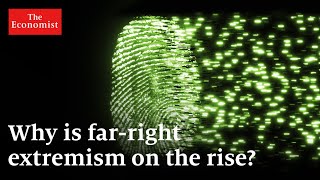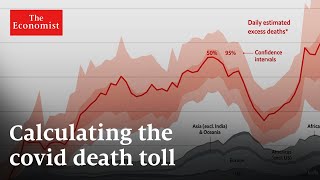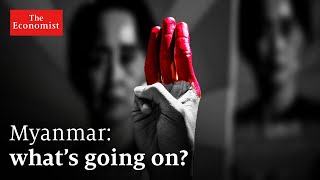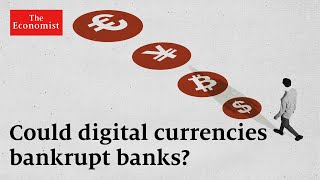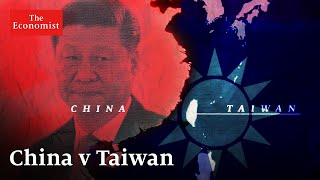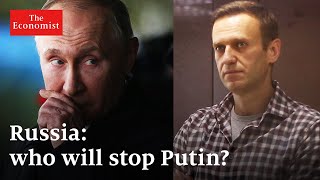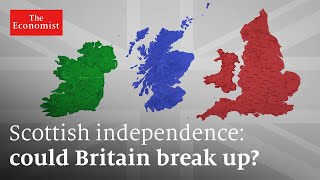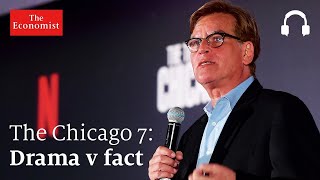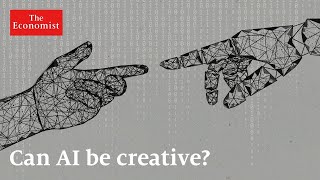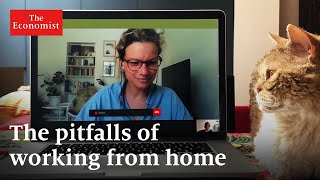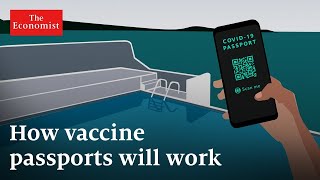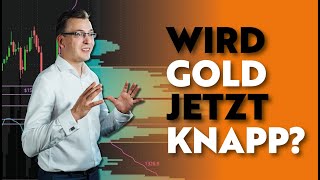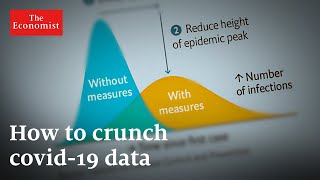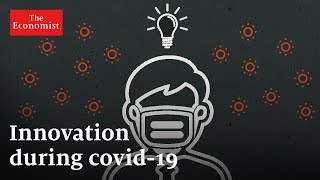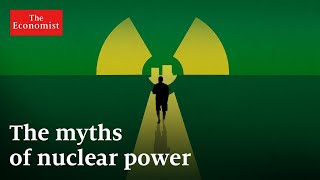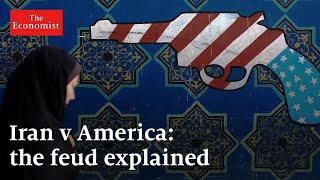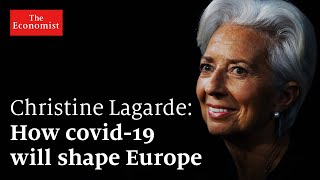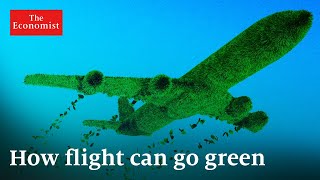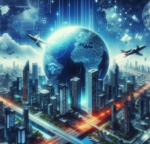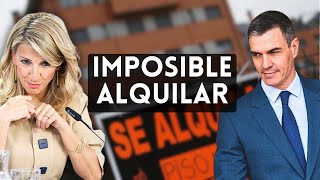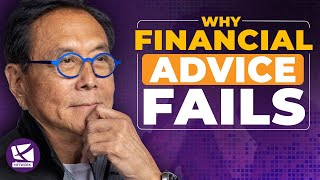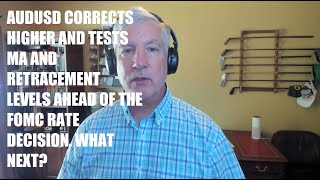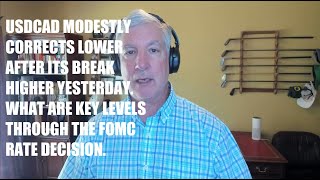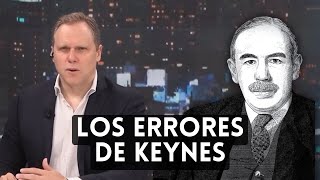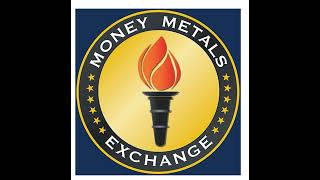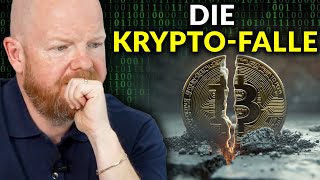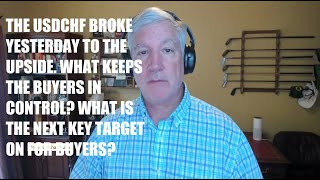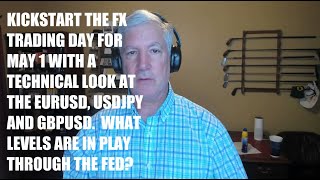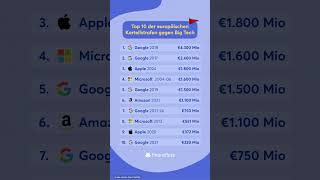Category Archive: 5.) The Economist
Fortnite to far right: the rise of digital extremism | The Economist
In America, far-right extremism is now considered a greater domestic threat than Islamist terrorism. The pandemic has exacerbated the spread of white supremacism and neo-nazism, which are a plague to global security.
Read More »
Read More »
Covid-19: how many people have died? | The Economist
Officially, covid-19 has killed 3m people around the world. But statistical modelling from The Economist suggests the number could be as much as four times higher.
Chapters
00:00 - How accurate is the official death toll?
01:25 - How to calculate the real death toll
02:10 - How to calculate India’s death toll?
03:25 - Where has the death toll been underreported?
04:14 - Where are excess deaths lower than expected?
05:06 - India’s second wave...
Read More »
Read More »
Is Myanmar a failed state? | The Economist
Myanmar is on the brink of collapse. Its armed forces are continuing a brutal crackdown—arresting, torturing and killing protesters—as Aung San Suu Kyi, Myanmar’s de-facto leader, is detained. Our experts answer your questions.
Chapters
00:00 - What will happen to Aung San Suu Kyi?
02:15 - What are India and China doing?
03:37 - Should the West intervene?
05:25 - What’s happening to the Rohingya refugees?
07:16 - How will Myanmar’s neighbours be...
Read More »
Read More »
Could digital currencies put banks out of business? | The Economist
Cryptocurrencies like Bitcoin have been billed as a major disruptor to finance. But digital currencies issued by governments might be even more radical—they may even threaten the future of traditional banking.
Read our special report, “The Future of Banking” : https://econ.st/3tuTT8y
Sign up to our newsletter to keep up to date: https://econ.st/3a6aZmv
Read more of our coverage on Finance & Economics: https://econ.st/3b0g3cs
Listen to...
Read More »
Read More »
Is Taiwan part of China? | The Economist
Taiwan’s sovereignty has been a disputed issue for centuries. Though the island sees itself as independent, China insists it is part of the People’s Republic and has not ruled out taking Taiwan by force. That could ignite an all-out war between American and China.
Sign up to our newsletter to keep up to date: https://econ.st/3a6aZmv
Read all of our Asia coverage: https://econ.st/2QDDDEJ
Listen to Intelligence’s daily podcast “Scared strait:...
Read More »
Read More »
Alexei Navalny: will the West stand up to Russia? | The Economist
Alexei Navalny’s hunger strike has prompted widespread international support. Vladimir Putin has warned that any country meddling in Russia’s affairs will “regret their actions”. How should the West respond to a tyrant like Putin?
Chapters
00:00 - What’s happening in Russia?
00:54 - What does Navalny represent for Russia?
01:36 - How should America respond?
03:08 - Do sanctions work?
05:30 - Why were troops sent to the Ukranian border?
07:20 -...
Read More »
Read More »
Scottish independence: could Britain break up? | The Economist
The union between the nations of the United Kingdom is looking increasingly fragile, thanks to Brexit. If Scotland were to break away from Britain it would face an uncertain future—as would the rest of the union.
Sign up to our newsletter to keep up to date: https://econ.st/3a6aZmv
See all of our Britain coverage: https://econ.st/3e1cN15
How the pandemic has strengthened calls for Scottish independence: https://econ.st/3tqDZwL
Scottish...
Read More »
Read More »
The Trial of the Chicago 7: fact v drama | The Economist
“The Trial of the Chicago 7” has been nominated for six Oscars. Aaron Sorkin, the film’s screenwriter and director, speaks to The Economist about the tension between historical accuracy and compelling drama.
00:00 - The Trial of the Chicago 7
00:51 - Why is the story still so relevant?
01:34 - How to adapt real events into drama
02:40 - Why the film deviates from historical fact
04:41 - Historical accuracy v artistic truth
05:41 - Altering events...
Read More »
Read More »
How AI is transforming the creative industries | The Economist
Artificial intelligence is helping humans make new kinds of art. It is more likely to emerge as a collaborator than a competitor for those working in creative industries. Film supported by Mishcon de Reya
Sign up to The Economist’s daily newsletter: https://econ.st/3dm9rp9
Find our most recent science and technology coverage: https://econ.st/2QTAukd
Listen to Babbage, The Economist’s science and technology podcast: https://econ.st/3ftaPJf...
Read More »
Read More »
The remote-working revolution: how to get it right | The Economist
It’s likely working from home is here to stay—for some workers, at least. But this “new normal” will have long-term implications for the relationship between employers and employees—from tax, to employment law, to physical and mental health.
Read more of our coverage on business : https://econ.st/3weF8t0
Listen to our podcast “Homework: the future of the office”: https://econ.st/3ddJo3u
How pandemic is affecting working mums:...
Read More »
Read More »
Can vaccine passports kickstart the economy? | The Economist
Vaccine passports are likely to become a feature of everyday life as lockdowns are lifted across the world. But as “green passes” kick-start economies, what are the potential drawbacks?
Read more of our coverage on coronavirus : https://econ.st/397Mkxq
Listen to "The Jab", our new vaccine-related podcast series: https://econ.st/3w2ZiGC
Listen to our daily podcast "The Intelligence": https://econ.st/3f7O1ic
How well will...
Read More »
Read More »
Israel’s election: what next for Netanyahu? | The Economist
Binyamin Netanyahu, Israel’s prime minister, is campaigning in the country’s fourth election in two years—while also standing trial on corruption charges. Will this election mark a shift in Israel’s political landscape?
00:00 - Four elections in two years: why?
00:57 - How is Netanyahu polling?
01:59 - Netanyahu’s corruption charges
03:03 - What’s next for the corruption trial?
04:33 - What led to government collapse
05:34 - Where has Netanyahu...
Read More »
Read More »
The future of shopping: what’s in store? | The Economist
The pandemic has upended the way people buy—online retail has soared as high-street shops and malls close. Brands are now racing to exploit one of the most important weapons in the battle for buyers: their customers’ data.
Read our special report on the future of shopping here: https://econ.st/2Q8XQC2
Read more of our business coverage: https://econ.st/2OsXUw2
Listen to “Money Talks” weekly podcast on markets, the economy and business:...
Read More »
Read More »
How to crunch covid-19 data | The Economist
Data analysis has been crucial to better understanding, tracking and preventing the spread of covid-19. The Economist's data journalists give an insider’s steer on how their analysis and presentation of data has shaped our coverage of the pandemic.
See all our data journalism in The Economist's graphic detail section: https://econ.st/3qEZnMD
Keep up to date with our data journalism by signing up to “Off the Charts,” our new weekly newsletter:...
Read More »
Read More »
How covid-19 is boosting innovation | The Economist
Covid-19 has accelerated the adoption of technologies and pushed the world faster into the future. As businesses and organisations look towards the post-pandemic era, what lessons can be learned about innovation? Read more here: https://econ.st/3t6T7yM
Chapters
00:00 - How has covid-19 boosted innovation?
01:20 - Drone deliveries
04:20 - How crises lead to innovation
06:47 - How restaurants have innovated
09:29 - Inequality between companies
10:48...
Read More »
Read More »
Nuclear power: why is it so unpopular? | The Economist
The meltdown at a nuclear power station in Fukushima, Japan, ten years ago stoked anxieties about nuclear energy. But nuclear is one of the safest, most reliable and sustainable forms of energy, and decarbonising will be much more difficult without it.
Further content:
Sign up to our newsletter about climate change: https://econ.st/38bLSO9
The Economist also has a new weekly newsletter, Simply Science: https://econ.st/3uWjw4b
Find all our...
Read More »
Read More »
Iran v America: what’s behind the feud? | The Economist
Iran and America’s decades-long feud has led to hostage-taking, sanctions and proxy wars that have shaped the Middle East. What is behind the feud, and can it be resolved?
Chapters
00:00 - The history of the feud
01:01 - 1951-53: The Persian Oil Crisis
02:04 - The 1953 coup
04:11 - 1978-1979: The Iranian revolution
05:12 - 1979-81: The hostage crisis
06:58 - 1980-88: The Iraq-Iran war
09:06 - 1983: US embassy bombing
09:50 - Hizbullah
11:00 - The...
Read More »
Read More »
How will covid-19 change travel? | The Economist
The covid-19 pandemic has devastated the travel industry. But as vaccines are rolled out and global travel slowly picks up, how will the industry evolve, and will holidays ever be the same again? Read more here: https://econ.st/3aA2row
Sign up to The Economist’s daily newsletter to keep up to date with our latest coverage: https://econ.st/3aor3kg
Read our special report about the future of tourism: https://econ.st/3bnP1vc
Read about why...
Read More »
Read More »
Christine Lagarde: How covid-19 will shape Europe | The Economist
Europe has been widely criticised for its slow response to the covid-19 pandemic. Christine Lagarde, president of the European Central Bank, discusses the long-term damage and whether things might have been different had there been more female leaders.
Chapter titles
00:00 - Covid-19 in Europe
00:52 - How covid-19 worsens inequality
03:35 - Why female leaders have performed better
05:10 - How to have more female leaders
06:38 - Europe’s stimulus...
Read More »
Read More »
Can flying go green? | The Economist
Covid-19 has caused the worst crisis in aviation's history. Is this the industry's moment for a green reset—and which technologies offer the best hope?
Read The Economist’s special report on business and climate change: https://econ.st/3bbckJZ
Sign up to The Economist’s fortnightly climate change newsletter: https://econ.st/3b8FQ3c
Find our most recent climate change coverage: https://econ.st/3pQLYkq
Can the aviation industry fully recover...
Read More »
Read More »









